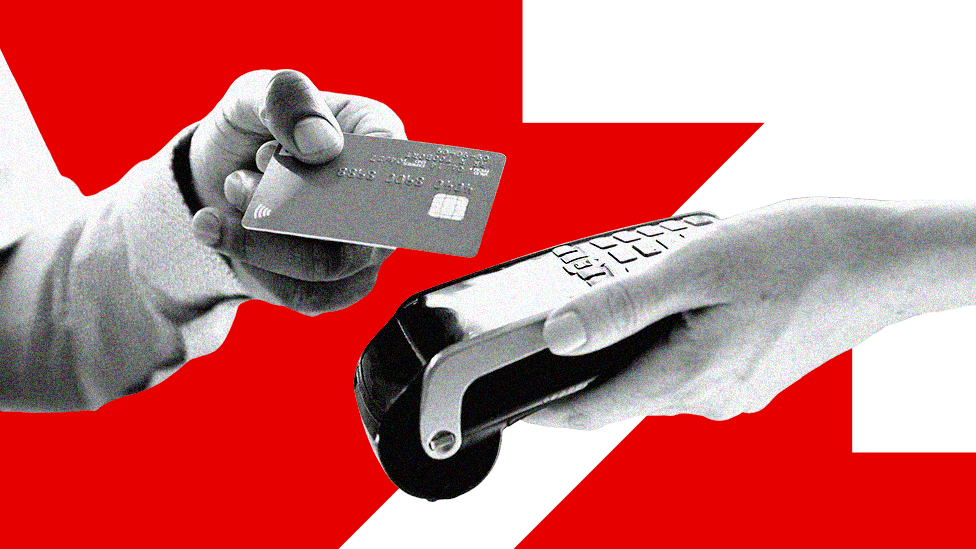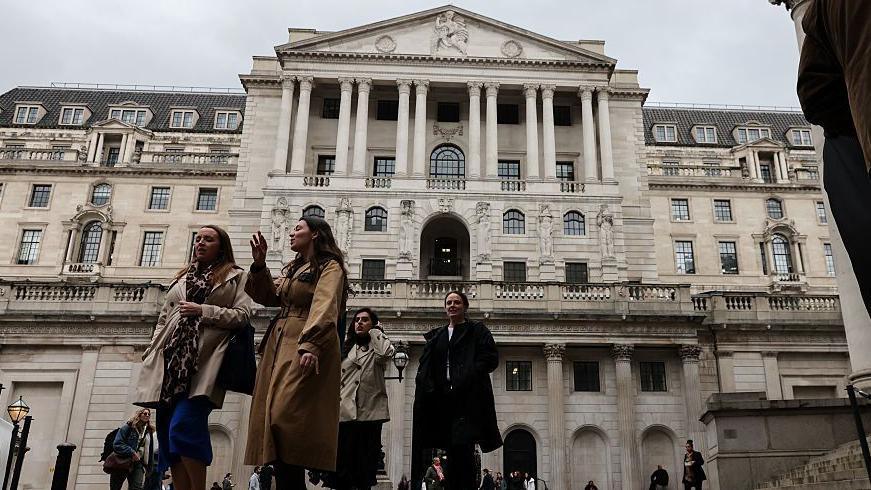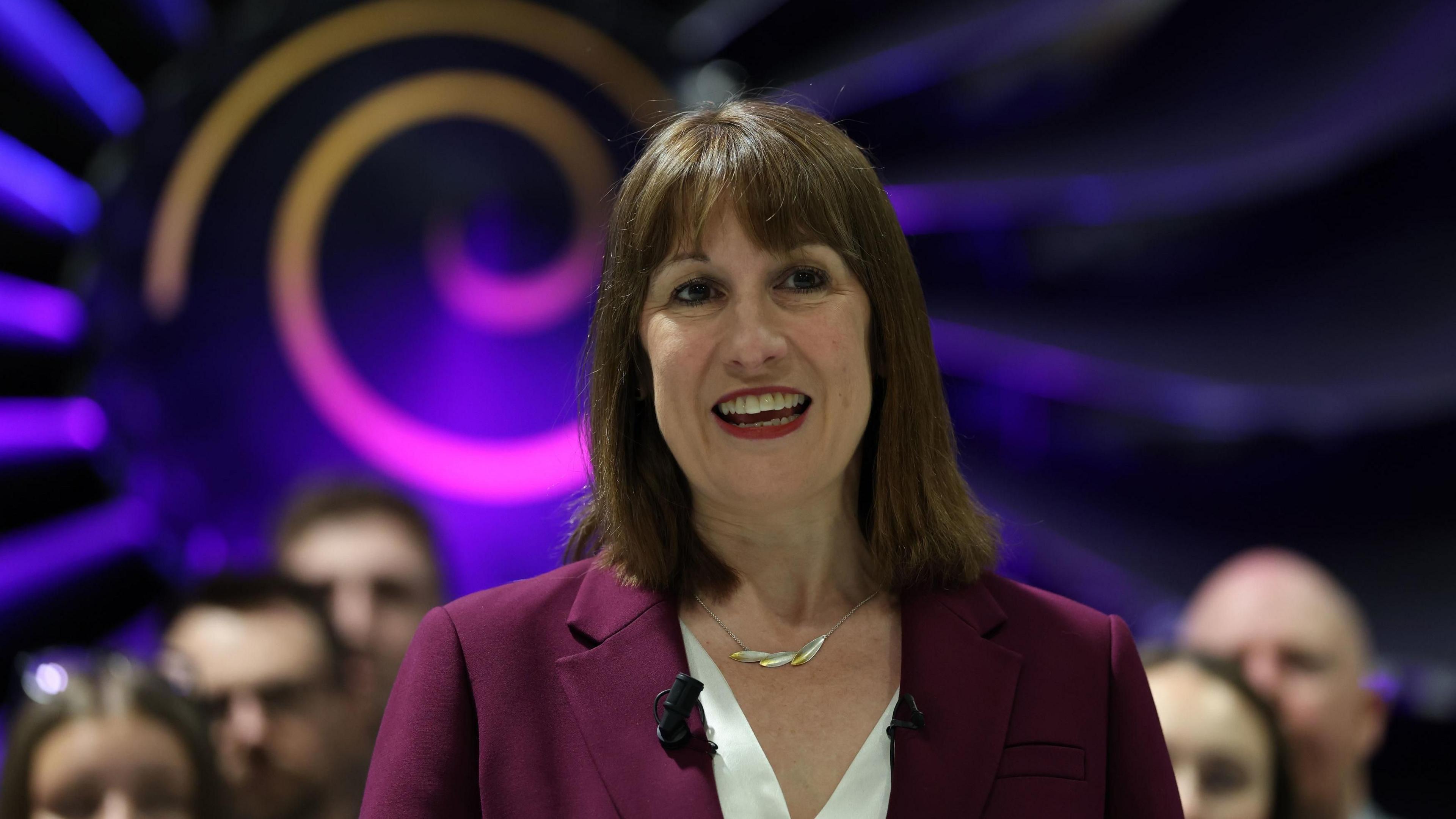Reeves says UK 'beginning to turn corner' as growth beats forecasts
Rachel Reeves said the growth figures were "very significant"
- Published
The UK economy is "beginning to turn a corner", the chancellor has said, after it grew more than expected in the first three months of the year.
Rachel Reeves told the BBC the 0.7% growth in the January-to-March period was "very encouraging", but shadow chancellor Mel Stride said it was "a bit premature to be popping the champagne corks".
The growth figure was stronger than the 0.6% that had been forecast, and was helped by increases in consumer spending and business investment.
The figures mark the period just before the US imposed import tariffs and UK employer taxes increased in April, and analysts warned the strong rate of growth was unlikely to continue.
The Labour government made boosting the economy its top priority when it came to power last year, but its decision to increase employers' National Insurance (NI) contributions was criticised by many businesses who said it could hit growth.
The US import tariffs are also expected to hit growth, with the International Monetary Fund recently downgrading its forecasts for the global economy and UK.
Last week, the UK struck a deal with the US that will reduce or remove tariffs on some UK exports, although the blanket 10% levy still applies to most goods entering the US.
Reeves told the BBC: "We are set to be the fastest growing economy in the G7 in the first three months of this year.
"We still have more to do," she added. "I absolutely understand that the cost of living crisis is still real for many families, but the numbers today do show that the economy is beginning to turn a corner."
Mel Stride criticised the rise in employers' NI payments, calling it a "jobs tax".
"Labour inherited the fastest-growing economy in the G7, but their decisions have put that progress at risk," he said.
Liberal Democrat Treasury spokesperson Daisy Cooper said the data was "positive news", but there was "no time for complacency".
Reform UK deputy leader Richard Tice MP said: "We are yet to see the impact of Rachel Reeves' April tax rises on growth, it won't be pretty."
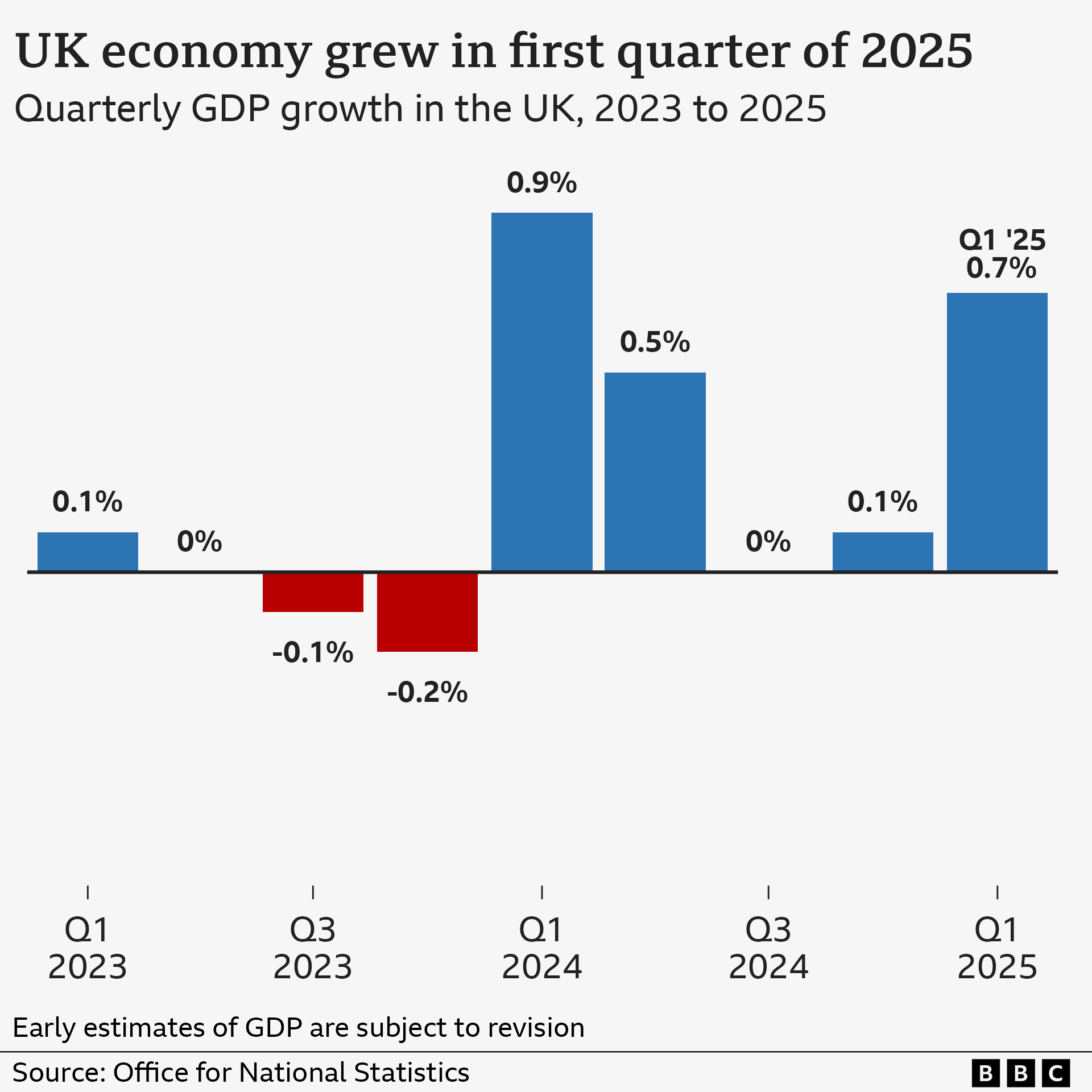
The Office for National Statistics (ONS) said the UK's dominant services sector - which covers businesses in sectors such as retail, hospitality and finance - was the biggest driver of growth in the first three months of the year.
The ONS data also showed that real GDP per head - which is a measure of the country's economic output per person - rose by 0.5% in the same period, following two consecutive quarters of falls.
But analysts warned growth was expected to slow in the months ahead, with Paul Dales at Capital Economics saying the latest figures "might be as good as it gets for the year".
He said the strong rise in GDP was "unlikely to be repeated as a lot of it was due to activity being brought forward ahead of US tariffs and the rise in domestic businesses taxes".
Mr Dales noted that export volumes in the first three months of the year increased by 3.5%, following three consecutive quarterly declines.
But Liz Martins, senior UK economist at HSBC, told the BBC's Today programme she was "quite cheered" by the figures.
"Business investment is up nearly 6% on the quarter and the service sector is doing well as well.
"So it's not just manufacturers selling to the US to get ahead of the tariffs."
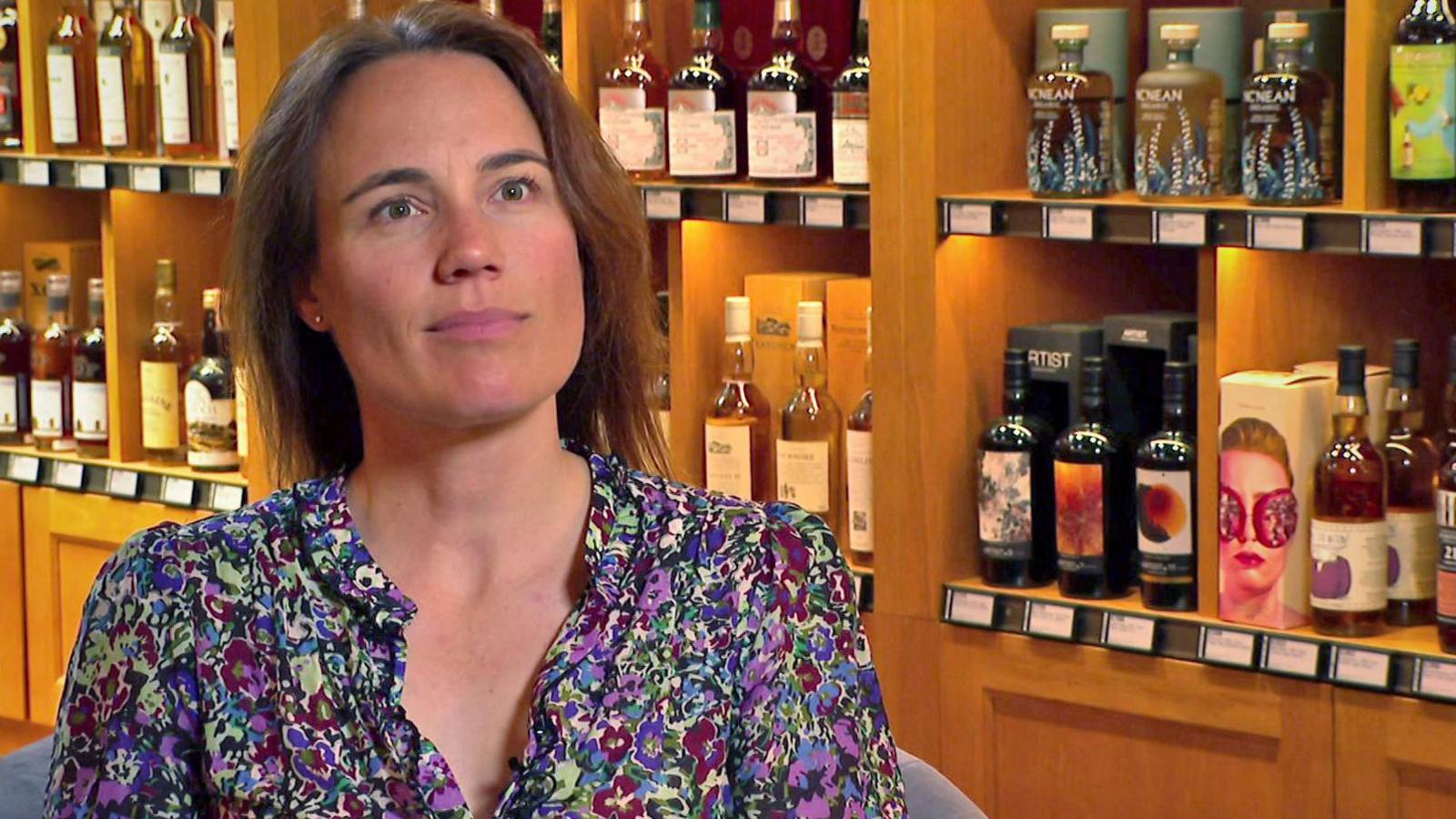
Annabel Thomas says her company will absorb US tariffs
Annabel Thomas, chief executive of the Nc'nean Whisky Distillery based in Scotland, says she is "reasonably confident" about prospects for the UK.
UK interest rates are expected to fall further this year, "and that really affects the money people have in their pockets," she says.
The business is growing in the US, and so decided to "absorb the tariffs and keep our prices stable in the US".
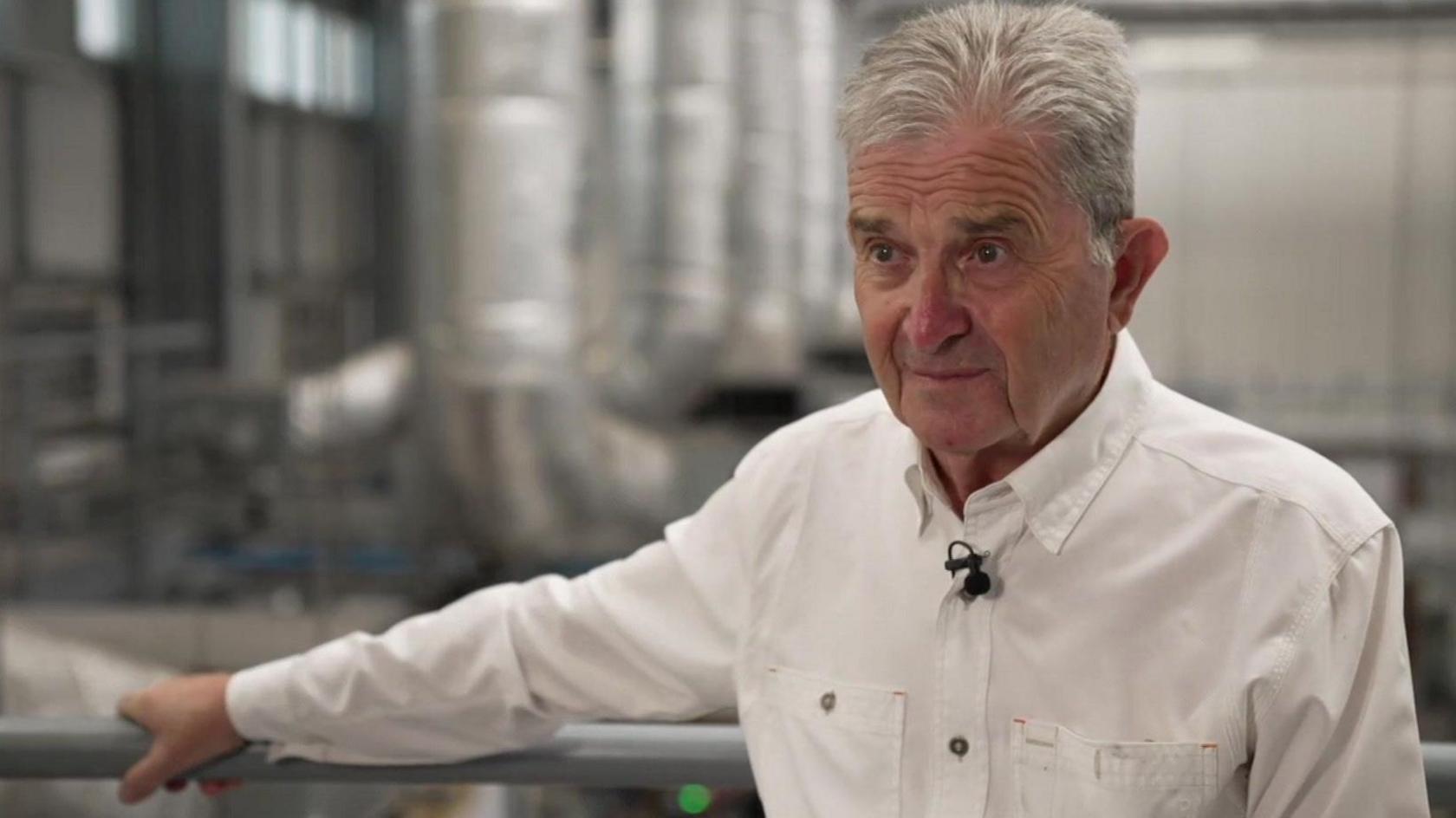
John Inglis says his firm is "holding fire" on decisions
John Inglis is the founder of diamond tool manufacturer Exactaform, which employs 100 people and has a factory in the US. He says making decisions over the business's future has become very difficult.
"We've got tariffs. We don't know which way we're going - 10% off a margin is quite a lot."
He says they are reluctant to move production to America as they would be "putting UK people who have been very loyal to us out of work".
As for the rise in employers' NI, he says he does not mind "putting in extra... but it's all niggling away at the profit you need to expand".
"We're holding fire [on decisions] because if you make the wrong decision now, everybody's out of a job."
Last week, the Bank of England lowered UK interest rates to 4.25% from 4.5% and hinted more cuts could follow in the coming months.
But the stronger-than-expected growth figure has tempered the markets' view on further interest rate cuts this year.
Analysts suggest potentially fewer reductions will come than previously expected and that has affected so-called swap rates, which hugely influence fixed-rate mortgage pricing.
Mortgage rates could now tick back up, although predictions are highly volatile. TSB has said it will increase its rates on Friday.
Get in touch
Are you feeling optimistic about the UK economy and your own finances?

Sign up for our Politics Essential newsletter to keep up with the inner workings of Westminster and beyond.
Related topics
- Published15 May

- Published5 days ago
